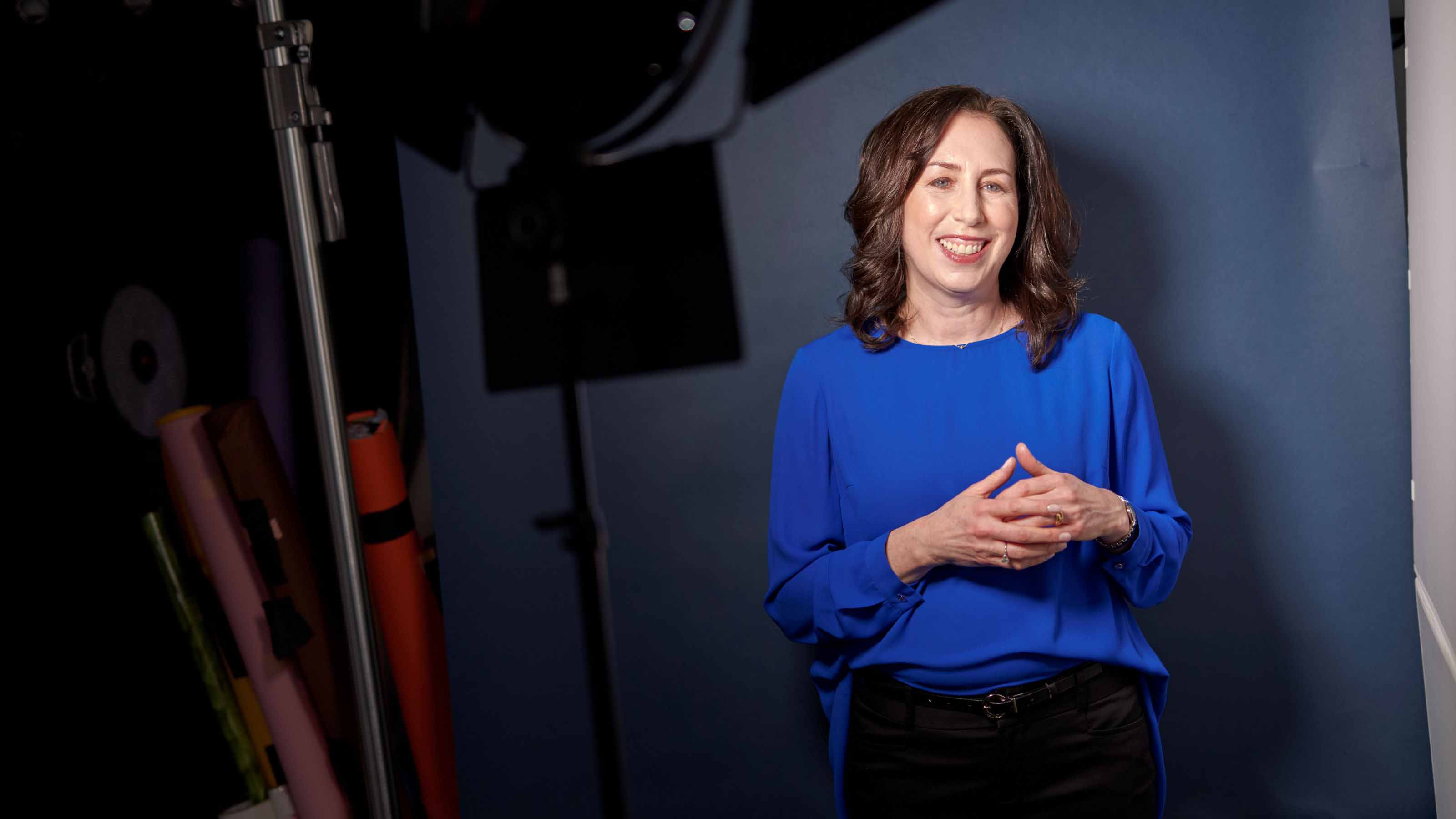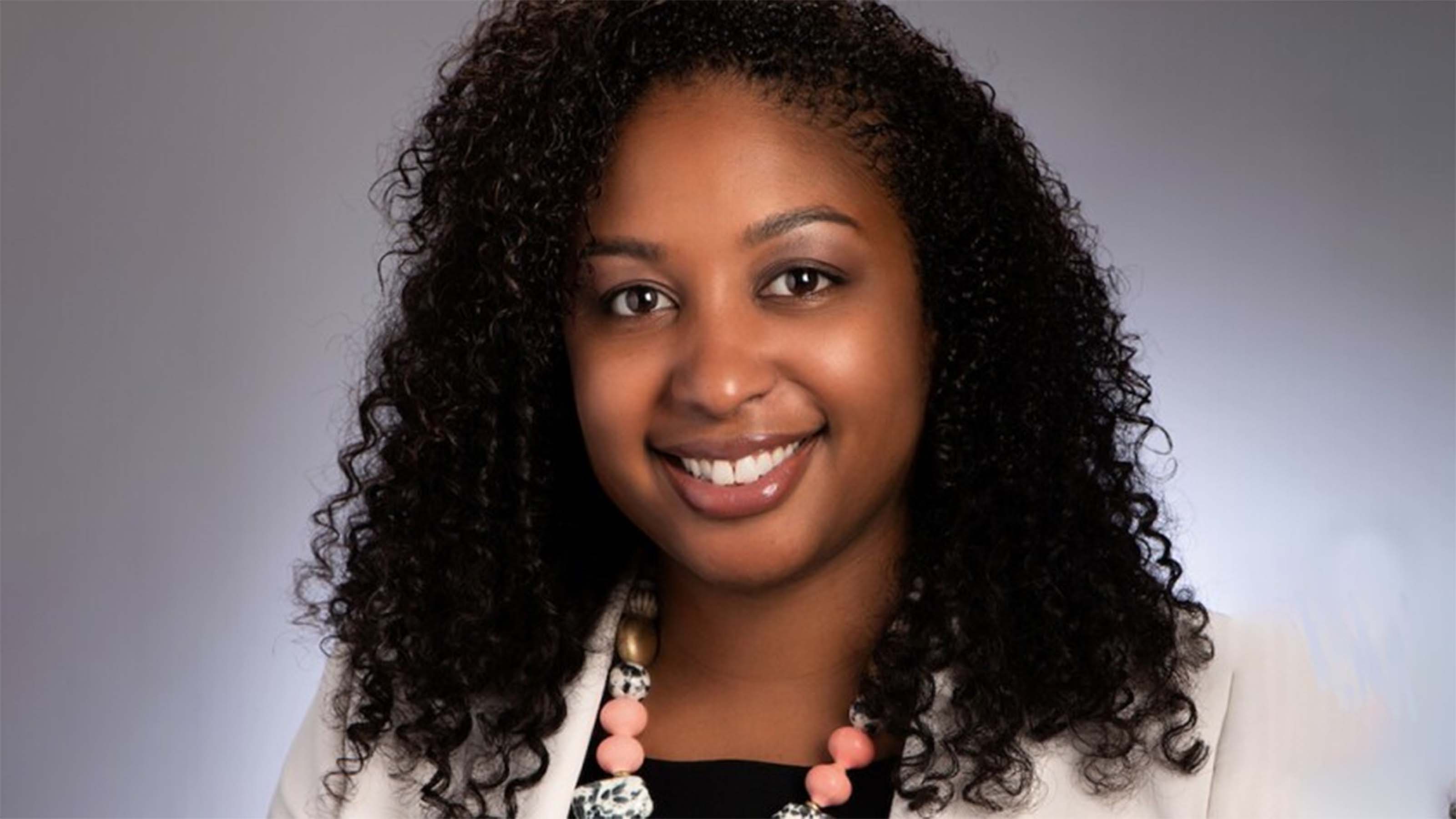Couples and Money
Love is in the air, and Kiplinger senior editor Eileen Ambrose joins the podcast to talk about how to best manage financial issues with your significant other. Also, hosts Sandy Block and Ryan Ermey chat about the best and worst career paths over the next decade.
Profit and prosper with the best of Kiplinger's advice on investing, taxes, retirement, personal finance and much more. Delivered daily. Enter your email in the box and click Sign Me Up.
You are now subscribed
Your newsletter sign-up was successful
Want to add more newsletters?

Delivered daily
Kiplinger Today
Profit and prosper with the best of Kiplinger's advice on investing, taxes, retirement, personal finance and much more delivered daily. Smart money moves start here.

Sent five days a week
Kiplinger A Step Ahead
Get practical help to make better financial decisions in your everyday life, from spending to savings on top deals.

Delivered daily
Kiplinger Closing Bell
Get today's biggest financial and investing headlines delivered to your inbox every day the U.S. stock market is open.

Sent twice a week
Kiplinger Adviser Intel
Financial pros across the country share best practices and fresh tactics to preserve and grow your wealth.

Delivered weekly
Kiplinger Tax Tips
Trim your federal and state tax bills with practical tax-planning and tax-cutting strategies.

Sent twice a week
Kiplinger Retirement Tips
Your twice-a-week guide to planning and enjoying a financially secure and richly rewarding retirement

Sent bimonthly.
Kiplinger Adviser Angle
Insights for advisers, wealth managers and other financial professionals.

Sent twice a week
Kiplinger Investing Weekly
Your twice-a-week roundup of promising stocks, funds, companies and industries you should consider, ones you should avoid, and why.

Sent weekly for six weeks
Kiplinger Invest for Retirement
Your step-by-step six-part series on how to invest for retirement, from devising a successful strategy to exactly which investments to choose.
Ryan: It's nearly Valentine's Day, and love is in the air. Here at Kiplinger we encourage lovebirds to hold hands, take long romantic strolls and of course, check out each other's credit reports. We know it's less than sexy, but Sandy and I are joined by senior editor Eileen Ambrose, to tell you why it and other money strategies for couples are necessary in our main segment. On today's show, Sandy and I highlight some of the best and worst career paths for the next decade and delve into another game of Financial Fact or Fiction. That's all ahead on this episode of Your Money's Worth. Stick around.
- Episode Length: 00:26:18
- Links and resources mentioned in this episode
- SUBSCRIBE: Apple Google Play Spotify Overcast RSS
Ryan: Welcome to Your Money's Worth. I'm Kiplinger staff Ryan Ermey, joined as always by senior editor Sandy Block. Sandy, it's a special episode today. It's the Valentine's Day episode of Your Money's Worth. How are you feeling?
Sandy: Feeling the love, Ryan.
From just $107.88 $24.99 for Kiplinger Personal Finance
Become a smarter, better informed investor. Subscribe from just $107.88 $24.99, plus get up to 4 Special Issues

Sign up for Kiplinger’s Free Newsletters
Profit and prosper with the best of expert advice on investing, taxes, retirement, personal finance and more - straight to your e-mail.
Profit and prosper with the best of expert advice - straight to your e-mail.
Ryan: Oh, thank goodness. Well, before we get into all that, we're going to be talking to senior editor, Eileen Ambrose, about couples and money in our main segment. Before we get into that, a couple of slideshows that are up on Kiplinger.com right now are the 30 best jobs and 20 worst jobs for the future. We're talking through the end of 2027, and what our colleagues on the website have done is that they took 773 popular occupations and focused on, in the case of the good ones, ones in which people in those jobs are collecting generous paychecks, jobs that are expected to expand over the next decade or so, and tilted toward jobs that you don't have to pay an exorbitant amount in education in order to earn a respectable salary. We thought that I would go through some of the best jobs, and you would go through some of the worst jobs. What is your worst job you've ever had?
Sandy: My worst job I ever had was in between, in high school and part of the time in college I worked at the local Dairy Queen. You would be amazed at how many drunk people show up at the Dairy Queen. It was either that or a hundred in Little Leaguers who only had enough money to buy one Dilly Bar, but wanted to go through the entire menu first.
Ryan: Here's the thing. I'm actually not surprised at all that drunk people show up at Dairy Queen. Being a fan...
Sandy: In the middle of the day?
Ryan: ... being a fan of the Oreo Blizzard myself. Listen, sometimes...
Sandy: You need some help.
Ryan: ... it cures what ails you. All right. I guess my worst job was I worked in a warehouse one year in college. There was a shipment. I was brought on as extra work because there was a shipment that had been sitting in the warehouse for like a year and had to go out. It was like 95 degrees in there every day, and because this had been sitting in there for so long, it had collected so much dirt that I would come home every day, and I would be dirty from under my fingernails to where my t-shirt ended, and from my thighs to my socks.
Sandy: Nasty.
Ryan: I mean, blow my nose, black.
Sandy: Oh, nasty. Well, I used to come home wearing a large milkshake, so I feel you there. I get it.
Ryan: The number one job for the future, care to guess?
Sandy: I'm afraid it is not journalism.
Ryan: No, no, no, no. It's app developer, which makes sense, right?
Sandy: Yeah.
Ryan: Look down at how you're consuming this podcast right now, likely on an app of some sort. We're looking at about $101,000 annual median salary, 30% expected job growth through 2017, and you only need a bachelor's degree to get it. Well, not necessarily, but if you have a college degree in computer science, software engineering, or a related field, you can likely get in as a web developer, and that's sort of a launching pad through which you could work your way up. Obviously, we understand why this is an area of expected growth because it's virtually ubiquitous.
Sandy: That's right. So what's another one, Ryan?
Ryan: One that I thought was interesting. We're not going to go in order. We're going to go in the ones that we think are interesting. Number eight on the list is physician's assistant, which I thought was especially interesting because physician is number nine.
Sandy: I would imagine physician requires a huge investment of time and money. I'm guessing that a physician's assistant is a lot less onerous in terms of debt.
Ryan: Right. It really highlights the way that if you're focused on value, you can really take into account all of these different factors when choosing a profession. I think a lot of people interested in getting into the medical field think, "Well, I have to go to med school, because I have to get the prestigious job as a doctor." But a physician's assistant, you're still working with patients. You're still trained to diagnose and treat patients, and write prescriptions, and run tests, but it doesn't require nearly as much schooling, so you're not going to come out of PA school with nearly as much debt, and you're not going to have to spend as much time in school. For a lot of people, maybe your MCAT didn't go the way you wanted or whatever, or maybe just being a physician isn't for you, this could still be way to be in a medical field that's extremely lucrative, that's extremely fast-growing. There's a lot of different ways to look at it. I thought that was an interesting one.
Sandy: Yeah, that is. Give me one more.
Ryan: Well, the last one I wanted to talk about was something that is kind of on the brain right now with unemployment so low, human resources managers.
Sandy: Oh, HR.
Ryan: Yeah. They're at an extreme premium because there's really heightened competition with unemployment so low among employers to attract the best people, so they need to hire good HR people. This is yet another one that you can start out with a bachelor's degree. You can get an entry level position as a human resource specialist. You can work your way up into this human resources manager role. The median salary is $107,000...
Sandy: Whoa.
Ryan: ... or so. It's an area that we expect to grow by about 10% per year through 2027.
Sandy: No heavy lifting, no dust, no milkshakes. Sounds good to me, Ryan.
Ryan: All right. What are some of the worst ones here?
Sandy: Okay. All right. My first one ... this makes me sad because it's projectionist. I actually worked as a projectionist in high school. I made good money at it. But there are a couple of reasons. There's just been a big decline, and the median annual salary is 22,000, partly just because people don't go to the movies as much anymore. But I think a bigger issue, and I see this when I was a projectionist, you actually had to haul the reels up the stairs and change them. Now I think it's all digital. I think it's set it and forget it, so there's no particular skill required. I can't remember the last time I went to a movie where the film broke. It used to happen all the time, and you had to have a special skill to get that sucker back up.
Sandy: In our worst jobs, we also offer some alternate careers. The alternate career for someone who is an aspiring projectionist is to be an AV tech, which maybe we made fun of those guys in high school, but you can make some pretty good money. There's a lot of demand for them, and median pay is about twice what it is for a projectionist. That's one.
Sandy: Another one won't surprise anybody, which is a watch repairer. I mean, maybe there's a couple of specialized guys who are working on expensive watches, but people use high-tech devices. They don't get their watches repaired. They just get a new one, so that one doesn't really surprise me. If you really want to work with your hands, and you like wires, look into being an electrician instead. There is a demand for that, and we're not...
Ryan: And a union.
Sandy: ... we are not going to run out of electricity.
Sandy: The last one just kind of made me laugh, and that is an embalmer. Now I remember when I was in high school we had career day. There was somebody from the local funeral, and he was like the most popular guy there. I think maybe that was probably just because of the kind of gross factor, but it was also because in small towns the funeral home owner is often the richest person in town, because people are going to die. But more and more people are being cremated, so embalming is just really not a skill that there's a lot of demand for. But if that does interest you, there is a ... you know, people are still dying. There certainly are opportunities in being a funeral services manager, someone who arranges whatever type of funeral or arrangements a person wants. It's not that that particular business is out of style, but embalming is apparently something that there's just not a lot of demand for anymore. It's a dying industry.
Ryan: Yeah, a dying industry indeed. Although, I've always thought that the whole funeral services industry is like an incredibly noble profession.
Sandy: Yeah, you're with people at their most vulnerable. Having had my own experience with it, yeah, these people are angels on earth, I think, when they do it well. It's just that particular aspect of it is no longer in demand.
Ryan: Well, at any rate, folks, we'll have links to the slideshows and the show notes, whether you have a kid who's coming out of college or going into college, or you're just considering a career change, these are the ones that have the best prospects and...
Sandy: Or worst.
Ryan: ... for the next decade or so. Check it out. We're going to have it in the show notes, Best Jobs for the Future. We'll stick it in the show notes or just go find it under slideshows at kiplinger.com.
Ryan: Up next, senior editor, Eileen Ambrose, joins the show to talk couples and money. Don't go anywhere.
Ryan: We're back. We're here with senior editor, Eileen Ambrose. Eileen, since it's the special Valentine's Day episode of Your Money's Worth, we're here talking couples and money. Thanks so much for coming on.
Eileen: My pleasure.
Ryan: Well, talking about money has been called the last taboo. I guess we're wondering, is that still true?
Eileen: It's becoming less of a taboo. Our February issue showed that 86% of millennials feel comfortable talking about money with their partner. Gen Xers and baby boomers were close to them in that, so people are feeling more comfortable. On the other side, we still have room to improve. Polls show that 60% of married couples fail to disclose their salaries to each other before they got married. One out of five committed financial infidelity, which is basically hiding a credit card, a checking account, or savings account from your partner.
Ryan: Yikes.
Eileen: The other thing that polls show is that finances are increasingly important when you're looking for a partner. Four out of 10 people told WalletHub that they would not date a person with bad credit. More than half of people said that they would not marry someone with bad credit.
Sandy: So having bad credit makes you undateable. We've heard some planners have recommended that before you get married, you exchange credit reports. Why might that be a good idea? It doesn't sound very romantic to me.
Eileen: It's not romantic.
Sandy: Maybe some wine.
Eileen: It's a good idea, though, because when you're at the point that you're going to marry this person, you need to know a lot about each other, especially on finances. By sharing the credit report, that shows like what kind of debt you have, whether you have student debt because you went to get an MBA or whether you're racking up credit card debt and not paying your bills. That opens up a different discussion. But it tells you what kind of debt someone has, whether they've had bankruptcies in the recent past. Maybe it shows that they have a good credit record, and that's good to know so then you could take the discussion further, and you set your goals then.
Sandy: Yeah, because we hear stories from time to time of people who get married, and then find out that their partner has thousands of dollars in student debt, and that a big part of their combined finances have to go to making those payments. I think that can be a real buzz kill as far as romance goes. It seems like that is something you'd want to go going in, if for no other reason because it informs what you're going to be able to do, whether you're going to be able to buy a house, what kind of life you're going to have with that person.
Eileen: Yeah. A lot of times people will just say, "Well, I have some debt." Again, with the credit report, you will see how much debt. I mean, you need to get the numbers. From there, you could build beyond your credit report, share information about your assets. Once you have that, you talk about your goals and maybe the two of you decide that your goal will be buying a house in five years. All of that sets the stage for a happy financial life together.
Ryan: Once you have your happy financial life together, you still have to go about managing your various accounts. I know in the past we've advocated for some kind of yours, mine, and ours approach, right? Like you might have a joint account for joint expenses, your mortgage payment, or appliances for the house, or whatever. Then separate accounts for expenses that not necessarily that you want to keep from each other ... although that could be the case if you want to buy someone a gift ... but expenses on your own hobbies, and interests, and things like that.
Eileen: That's one approach, and it's a good approach. Everybody has different money management styles. You need to find the right one for you and your partner. To merge or not to merge accounts is ... I mean, to merge accounts is one of the big questions that you'll confront as soon as you get married. You'll find that some people advocate and some people are very happy about merging everything, because you're on the same team. That shows that you are on the same team. It makes finances simpler, because you have fewer accounts. Other people are very strict. They keep everything separate. They just divide the bills in half. They will also even prorate them. If you have one person who makes more than the other, they will prorate the bills so that the higher earner pays more.
Sandy: But, Eileen, a lot of couples get married at the later stage in life. It seems to me that those couples might be more inclined to keep separate accounts because they have more complex finances and maybe kids from a previous marriage. Do you think that's a good idea?
Eileen: Yes. Blended families have more difficult finances. You might have adult children from a previous marriage concerned that a parent's new marriage might reduce their inheritance, or you might have the new spouse uncomfortable or not liking the fact that a good chunk of the family income is going to alimony or child support. In cases like that, a prenup before you get married or postnup after your marriage, you could set forth your expectations of the finances. Also, when you have children from a previous marriage, that's where many families set up trusts so that they won't be disinherited when the parent dies.
Ryan: Talking about different styles when it comes to couples, one thing I know we've written about when it comes to investing is that a lot of times partners can have very different levels of risk tolerance and very different investing styles. How can couples go about blending two different ways that they like to invest?
Eileen: Yes, planners tell me that about half of couples have different styles. One tends to be more aggressive, and one more risk adverse. When you're looking at a couple's finances, you're looking at the whole picture, not just each individually. For those couples, if each of you have a 401(k), say, and they're about the same size, you can probably invest the way you want and then combined, when you put the whole picture together, you have a well-balanced portfolio. But if you don't have that, you could set different parameters, say like instead of having 80% of your entire portfolio in stocks, you set up a sum like 65% or 70%, which is aggressive enough for that one partner who likes to take on more risk, but not too risky for the other who would panic in a market downturn.
Sandy: But eventually you're going to retire, and you're going to be taking money out of both of those accounts, so it's going to be harder to keep them separate. Do you find that there are a lot of conflicts between couples about that issue and just when they're going to retire at all?
Eileen: As couples get older, and then as they approach retirement, a lot of times they combine accounts, just to simplify them so they don't have to keep track of so many accounts. That's not so much of an issue of combining accounts at probably that age. What is a big issue is that you have couples offer differ on retirement expectations. They spent like decades saving together and hoping to retire, but they never talked about what that retirement would look like or when it would happen. You find that with couples when there's a big age difference, so you have one partner who wants to retire at 65 and just assumes that the younger spouse who might be in the peak of their career, would retire at the same time. That leads to a lot of friction. For those couples, again going back to having to talk about things and being transparent, having these discussions like 10 years before either of you think about retiring can solve a lot of problems.
Sandy: I think sometimes that happens even when their ages aren't that different, just because people have different plans for when they ... one partner might just be loving his or her job and want to continue to work, and the other might be just counting the days until they reach full retirement age for Social Security and they can stay home. I think that is something people don't talk about enough.
Eileen: Yeah, and it's also the solution for these couples. It could be that the one who loves work stays working full-time, and then the other one just takes a part-time job, so they're semi-retired and still getting out of the house and having things to do, instead of waiting for the other spouse to come home from work.
Ryan: It really sounds like it's something that we've talked about before on this podcast, which is that you need to have money talks with your partner before they turn into money fights.
Eileen: Yes, and before they become a discussion with a divorce lawyer.
Sandy: Which is very expensive.
Ryan: So like we said, What To Talk About on a Money Date, you'll find it on the back page of the February issue of Kiplinger's Magazine. Eileen, thank you so much for coming on.
Eileen: You're welcome.
Ryan: After the break, it's credit reports, and tax rates, and a new game of Financial Fact or Fiction. Stay tuned.
Ryan: All right. Before we go, another quick game of Financial Fact or Fiction. I'm going to go first because Sandy, I know you've been itching to expound a little bit on yours, something that's very important to a lot of people in the discourse at the moment. Mine ties into what we were just talking about with Eileen. Which is fact or fiction? Now that it's the new year, you can get all three of your credit reports since you're entitled, from the three reporting agencies, to free credit reports per year.
Sandy: I think that's true, Ryan.
Ryan: Now, see, I thought that was true for a long time, too. The way I worded that, I mean I was being a little fishy there. You are entitled to three per year, but it's three per 12 months, not per calendar year. If you just got them in December, you've got to wait another 12 months. But, you know, this is something that we tell people to do all the time. You have to go to annualcreditreport.com to get your Experian and TransUnion and Equifax credit reports. Why do you want to see your credit reports? One is because it could be an indicator that you've been the victim of identity theft if you look at your report and find other names on it or something like that. It could also reveal that information on there is inaccurate, which affects your credit. In either case, if you find discrepancies in your report, report them to the agencies in question.
Sandy: One thing we often recommend, Ryan, is since you can get any one of your reports every 12 months, that you stagger them. Instead of ordering all three now, order Equifax now, order TransUnion in three months, and Experian three months later. That's sort of a free credit monitoring system, because then you can sort of keep a track of if anything weird is happening without having to pay for a credit report.
Ryan: Right on.
Sandy: All right. My fact or fiction is, if you're top tax rate is 70% ... and we're assuming you're pretty wealthy ... you will pay 70% of your income to the Feds.
Ryan: Well, I know that's not true. Tell the people about marginal tax rates, Sandy.
Sandy: Okay. Marginal tax rates don't apply to the total amount of taxes that you pay. Under our progressive tax system, your income is taxed at different levels, so you'll pay, say, 10% on a certain amount, 12% on a certain amount, 22% on a certain amount, and 24% on a certain amount. That makes sense because if, say, once you hit the 24% tax bracket that applied to all of your income, nobody would ever want a raise. It wouldn't work. The reason this is in the news is that some progressive Democrats have proposed raising the top tax rate for very wealthy people. Alexandria Ocasio-Cortez has proposed a 70% top tax rate on the very wealthy, but this would only apply, in her proposal, to income over 10 million.
Ryan: Right.
Sandy: You have to make 10 million before you hit the 70% mark. But there's so much misinformation about this. Recently the former governor of Wisconsin, Scott Walker, tweeted to a bunch of fifth graders. He said, "How would you feel if you went to your grandma's, and did some chores, and she gave you $10, and then when you went home, and your parents made you give them $7 back?" Of course, all the fifth graders were like, "Like that would be so not fair." Then everybody else came on Twitter and said...
Ryan: Well, it wouldn't be fair.
Sandy: It wouldn't be fair...
Ryan: That's why we're not doing it.
Sandy: ... and it wouldn't be true. Yeah. We've always had a progressive tax system. I think where the confusion comes is people look at their tax brackets. They think if they're in the 22 ... forget the really rich people. People look at ... they see that they make a certain amount of income, and they're in the 22% tax bracket. They think that they pay 22% on their income. 22% is their marginal rate. That's what they pay on their top, the top dollar that they owe, but their effective rate could be much lower than that. One of the things I think is always interesting about doing tax software is it will usually tell you what your effective rate is. It's going to be a lot less than 22%.
Sandy: People can have very interesting and political discussions about whether it makes sense to raise the top marginal tax rate on rich people, but if you're going to have these conversations, you need to be clear on how that works. We're not going to tax 70% of anybody's income. I don't even think they do that in Sweden ... maybe they do, I don't know. It's important to understand this, because it helps you make decisions in your life. If you think that making more money will automatically trigger taxes on your entire income, you're going to be less likely to try aand make more money. That's just not how it works.
Ryan: That's right. Make more money, folks.
Ryan: Well, that's it for this episode of Your Money's Worth. For show notes and more great Kiplinger content on the topics we discussed on today's show, visit kiplinger.com/links/podcasts. You can stay connected with us on Twitter, Facebook or by emailing us at podcast@kiplinger.com. If you like the show, please remember to rate, review, and subscribe to Your Money's Worth wherever you get your podcasts. Thanks for listening.
Links and resources mentioned in this episode
Profit and prosper with the best of Kiplinger's advice on investing, taxes, retirement, personal finance and much more. Delivered daily. Enter your email in the box and click Sign Me Up.

Block joined Kiplinger in June 2012 from USA Today, where she was a reporter and personal finance columnist for more than 15 years. Prior to that, she worked for the Akron Beacon-Journal and Dow Jones Newswires. In 1993, she was a Knight-Bagehot fellow in economics and business journalism at the Columbia University Graduate School of Journalism. She has a BA in communications from Bethany College in Bethany, W.Va.
-
 Ask the Tax Editor: Federal Income Tax Deductions
Ask the Tax Editor: Federal Income Tax DeductionsAsk the Editor In this week's Ask the Editor Q&A, Joy Taylor answers questions on federal income tax deductions
-
 States With No-Fault Car Insurance Laws (and How No-Fault Car Insurance Works)
States With No-Fault Car Insurance Laws (and How No-Fault Car Insurance Works)A breakdown of the confusing rules around no-fault car insurance in every state where it exists.
-
 7 Frugal Habits to Keep Even When You're Rich
7 Frugal Habits to Keep Even When You're RichSome frugal habits are worth it, no matter what tax bracket you're in.
-
 PODCAST: Tax Breaks for College Finance with Kalman Chany
PODCAST: Tax Breaks for College Finance with Kalman ChanyPaying for College Paying for (ever-pricier) college is a challenge that this consultant meets head on with highly specific guidance.
-
 PODCAST: Car-Buying in an Inflated Market with Jenni Newman
PODCAST: Car-Buying in an Inflated Market with Jenni NewmanBuying & Leasing a Car With cars both scarce and expensive these days, what to do if you want – or need – a new ride? Car-buying strategist Jenni Newman of Cars.com shares some tips. Also, more on the magical 9% savings bond.
-
 PODCAST: How to Find a Job After Graduation, with Beth Hendler-Grunt
PODCAST: How to Find a Job After Graduation, with Beth Hendler-GruntStarting Out: New Grads and Young Professionals Today’s successful job applicants need to know how to ace the virtual interview and be prepared to do good old-fashioned research and networking. Also, gas prices are high, but try a little global perspective.
-
 PODCAST: Is a Recession Coming?
PODCAST: Is a Recession Coming?Smart Buying With a lot of recession talk out there, we might just talk ourselves into one. We take that risk with Jim Patterson of The Kiplinger Letter. Also, dollar stores: deal or no deal?
-
 PODCAST: This Couple Tackles Love and Money as a Team
PODCAST: This Couple Tackles Love and Money as a TeamGetting Married Fyooz Financial, the husband and wife team of Dan and Natalie Slagle, have carved out a niche advising other couples with the money questions that come with pairing up. Also, where is this troubled stock market headed?
-
 PODCAST: Which Documents to Keep, Which to Shred and Which to Scan
PODCAST: Which Documents to Keep, Which to Shred and Which to Scanhome insurance A speedy recovery from disaster can depend on your recordkeeping. Kiplinger’s Personal Finance writer Rivan Stinson tells us how to get our papers in order.
-
 PODCAST: High Gas Prices with The Kiplinger Letter’s Jim Patterson
PODCAST: High Gas Prices with The Kiplinger Letter’s Jim Pattersoncars Why are we paying so much more at the pump? How long will it last? What can you do? Plus: Congress is making changes to retirement-savings rules again.
-
 PODCAST: The Future of Certified Financial Planners with Kamila Elliott
PODCAST: The Future of Certified Financial Planners with Kamila ElliottBecoming an Investor CFPs will tell you (and we’d agree) that not all financial advice is the same. We talk with the chair of the CFP Board about what she’s doing to preserve her organization’s brand and extend its reach. Also, the right way to file your tax returns for free.

